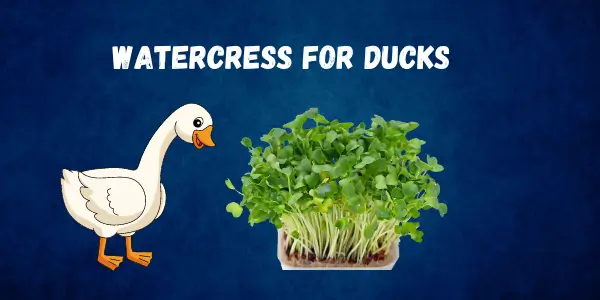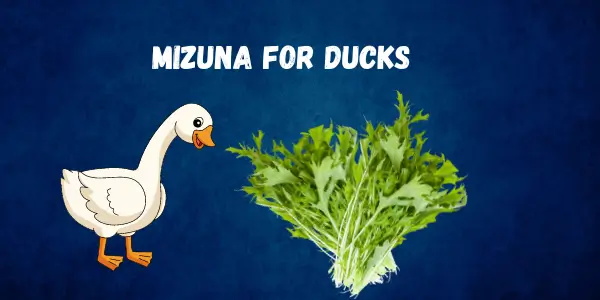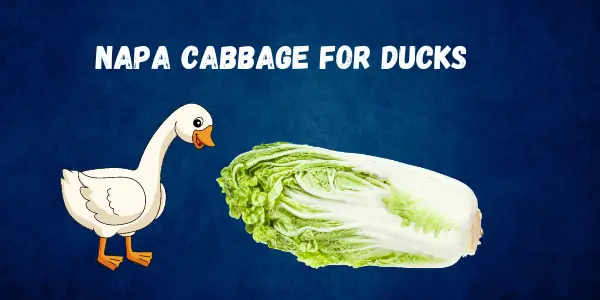Here’s What You Should Know Can Ducks Safely Eat Garlic? Read This
Published: 22 Sep 2024
Whether ducks can safely consume garlic, caution is advised. The query, “Can duck eat garlic,” often arises among duck owners curious about incorporating this common kitchen ingredient into their pets’ diets. Garlic offers numerous health benefits for humans, such as antibacterial and antifungal properties, but its impact on ducks can be quite different.
Can Ducks Eat Garlic?
Ducks are popular both as pets and for their agricultural value. Understanding their dietary needs is essential for maintaining their health and well-being.
Ducks are omnivorous birds that thrive on a varied diet consisting of grains, greens, insects, and small fish.

Commercial duck feed typically covers their nutritional needs, but many duck keepers like to supplement with kitchen scraps and garden produce to enhance their ducks’ health.
Garlic is widely recognized for its health benefits in humans, but its role in animal diets, especially for birds like ducks, is less clear.
This segment explores the potential benefits and risks of feeding garlic to ducks, addressing common questions and concerns about its safety and efficacy.
What is Garlic?
Garlic, scientifically known as Allium sativum, is a widely used culinary and medicinal herb. It belongs to the lily family, closely related to onions, shallots, and leeks.
Garlic is distinctive for its pungent aroma and strong flavor, which comes from its sulfur-containing compounds, most notably allicin. When garlic cloves are chopped or crushed, they release allicin, which is responsible for garlic’s characteristic odor and many of its health benefits.
Garlic is composed of a bulb that can be divided into multiple smaller sections called cloves. Each clove is encased in a thin, papery skin.
Beyond its culinary use, garlic is celebrated for its therapeutic properties, including its ability to enhance immune function, reduce blood pressure, and improve cholesterol levels.
It also exhibits strong antibacterial, antiviral, and antifungal effects, making it a staple in natural remedies as well as in cooking.
Antibacterial and Antifungal Properties:
Garlic contains allicin, a compound that emerges when garlic is crushed or chopped. This compound is known for its robust antibacterial and antifungal properties.
For ducks, this can be particularly advantageous, as it might help in preventing or controlling outbreaks of bacterial and fungal infections in flocks.
This natural remedy could potentially reduce the need for synthetic antibiotics, promoting a healthier, more natural environment for the birds.
Nutritional Components of Garlic:
Here’s a table displaying the nutritional components of garlic per 100 grams:
| Nutrient | Amount |
| Energy | 149 kcal |
| Water | 58.58 g |
| Protein | 6.36 g |
| Total fat | 0.5 g |
| Carbohydrates | 33.06 g |
| Dietary fiber | 2.1 g |
| Sugars | 1 g |
| Calcium | 181 mg |
| Iron | 1.7 mg |
| Magnesium | 25 mg |
| Phosphorus | 153 mg |
| Potassium | 401 mg |
| Sodium | 17 mg |
| Zinc | 1.16 mg |
| Vitamin C | 31.2 mg |
| Thiamin (B1) | 0.2 mg |
| Riboflavin (B2) | 0.11 mg |
| Niacin (B3) | 0.7 mg |
| Vitamin B6 | 1.235 mg |
| Folate (B9) | 3 µg |
This table provides a detailed look at the various essential nutrients found in garlic, highlighting its nutritional value beyond its culinary uses
Can Ducklings Eat Garlic?
Feeding garlic to ducklings is generally not recommended. Ducklings are much more sensitive than adult ducks to various substances due to their developing bodies and immune systems. Here are a few reasons why introducing garlic to ducklings might be particularly risky:
- Increased Sensitivity to Toxins: Ducklings are more vulnerable to the toxic effects of compounds like thiosulfates and allicin found in garlic. These compounds can cause oxidative damage to red blood cells, leading to anemia or other serious health issues.
- Digestive System Impact: The digestive systems of young ducklings are delicate, and garlic can be harsh, potentially causing irritation or digestive upset.
- Nutritional Imbalances: Garlic can interfere with the absorption of certain nutrients which are crucial for the growth and development of ducklings.
Types of Ducks Eating Garlic:
When considering the types of ducks that might be given garlic, it’s important to differentiate based on their purpose or lifestyle, as dietary needs can vary. Here are a few categories in point form:
- Backyard Ducks: Often kept for egg production or as pets; might be given small amounts of garlic for its health benefits, such as boosting the immune system and repelling pests.
- Commercial Farm Ducks: Raised for meat or eggs on a larger scale; garlic could occasionally be used in controlled amounts to promote overall health and potentially reduce reliance on antibiotics.
- Ornamental Ducks: Kept mainly for show or as pond pets; typically, it’s less common to feed garlic to these ducks unless specifically advised for health reasons.
- Wild Ducks: Not typically fed by humans, but when they are, it should be without any additives like garlic, as it can disrupt their natural diet and health.
Types Of Garlic Eat By Ducks:
Ducks can potentially consume different forms of garlic, but it’s important to be cautious with how much and which type is given to ensure their safety. Here are a few forms of garlic that might be used:
- Fresh Garlic: This involves raw garlic cloves. Only very small amounts should be considered because fresh garlic is potent and can quickly lead to toxicity.
- Garlic Powder: Often easier to dose and mix into duck feed, garlic powder must be used sparingly to avoid overconsumption.
- Garlic Oil: Sometimes used as a supplement, garlic oil can be added in small doses to duck feed. It must be carefully dosed as it is highly concentrated.
- Aged Garlic: Aged garlic supplements, known to be less harsh and with reduced levels of harmful compounds, might be safer for ducks compared to raw garlic.
Potential Benefits of Garlic for Ducks:
| Potential Benefits of Garlic for Ducks: |
|---|
|
Garlic is renowned not only for its culinary applications but also for its medicinal properties, which might extend some benefits to ducks when used appropriately in their diet. The inclusion of garlic in a duck’s diet could offer several health benefits:
While garlic can be a beneficial supplement, it should be used judiciously. Overconsumption can lead to toxicity issues in birds, such as anemia or digestive problems. Therefore, it’s crucial to consult with a veterinarian to determine the appropriate amounts and forms of garlic to safely offer to ducks. |
Other Vegetable Ducks Eat:
Okra
Fennel
Scallions
Onions
Mushrooms
Radicchio
Watercress
Endive
Risks of Feeding Garlic to Ducks:
| Risks of Feeding Garlic to Ducks: |
|---|
|
While garlic can offer several benefits to ducks when included in their diet, there are notable risks and toxicity concerns that must be considered to ensure the health and safety of these birds. Toxicity Concerns:Garlic, along with onions and other members of the Allium family, contains thiosulfates and allicin, compounds that can be toxic to birds in high doses. These compounds can cause oxidative damage to red blood cells, leading to hemolytic anemia, which is characterized by the rupture and destruction of red blood cells. This condition can manifest as weakness, lethargy, pale mucous membranes, and even death in severe cases. Possible Negative Effects on Health:In addition to the risk of anemia, feeding garlic to ducks can have other adverse health effects:
|
Safe Feeding Practices:
When it comes to feeding ducks, including the use of garlic or any supplement, safe feeding practices are essential to maintain their health and prevent negative outcomes. Here are some key guidelines:
- Consultation with a Veterinarian: Always consult with a veterinarian before introducing any new food item, especially something like garlic, to ensure it’s safe for your specific ducks and to get advice on proper dosing.
- Moderation is Key: If garlic is deemed safe for your ducks, use it sparingly. Small, infrequent doses can reduce the risk of toxicity and other side effects.
- Proper Preparation: Ensure that any garlic provided is appropriately prepared. For instance, fresh garlic should be finely chopped or crushed and thoroughly mixed with other food to prevent any large, concentrated doses.
- Gradual Introduction: When introducing garlic, start with very small amounts to monitor how the ducks react. This gradual approach helps identify any adverse effects before they become serious.
- Balanced Diet: Maintain a balanced diet for the ducks. Garlic or any supplement should not replace their regular, nutritionally complete feed but should only complement it.
- Observe for Reactions: After introducing garlic, keep an eye on the ducks for any signs of digestive upset or health issues such as changes in behavior, feeding patterns, or physical symptoms like lethargy or pale mucous membranes.
- Avoid Feeding to Young Birds: Ducklings and younger birds are more sensitive and should not be given garlic as their systems are not fully developed.
FAQs Feeding Ducks Garlic:
Can ducks safely eat garlic?
Ducks can eat garlic in very small amounts as it has potential health benefits, such as antibacterial properties. However, it must be used sparingly due to the risk of toxicity.
What are the benefits of feeding garlic to ducks?
Garlic may help boost the immune system, repel parasites, and act as an antibacterial and antifungal agent. However, these benefits must be weighed against the risks of toxicity.
How much garlic can I feed my ducks?
The amount of garlic safe for ducks is very small. It’s best to consult with a veterinarian for the appropriate dosage, which can vary based on the duck’s size, age, and overall health.
Are there any risks associated with feeding garlic to ducks?
Yes, garlic contains compounds that can be toxic to ducks, potentially causing anemia and digestive issues. High doses or frequent feeding of garlic are particularly risky.
Can ducklings be fed garlic?
No, it is not advisable to feed garlic to ducklings. Their bodies are more sensitive to the potentially toxic compounds in garlic.
What is the best way to introduce garlic into a duck’s diet?
Start with a very small amount to see how your duck reacts. Consult with a veterinarian first and ensure the garlic is well-diluted or mixed into their regular feed to avoid giving too much.
Can I feed garlic powder or oil to my ducks instead of fresh garlic?
Garlic powder and oil can be used, but they are more concentrated than fresh garlic and must be dosed very carefully. Always consult with a veterinarian for guidance on using these forms.
What should I do if I suspect garlic toxicity in my ducks?
If you notice symptoms such as lethargy, pale mucous membranes, or a decrease in appetite, stop feeding garlic immediately and consult a veterinarian.
Conclusion
While garlic can offer certain health benefits to ducks, such as enhancing their immune system and providing antibacterial properties, it must be used cautiously.
The risks associated with garlic, including potential toxicity and digestive upset, cannot be overlooked. It is vital to consult with a veterinarian before introducing garlic into your ducks’ diet, ensuring it is done safely and effectively.
By prioritizing the health and well-being of your ducks, you can make informed decisions about supplements like garlic in their feeding regimen.

- Be Respectful
- Stay Relevant
- Stay Positive
- True Feedback
- Encourage Discussion
- Avoid Spamming
- No Fake News
- Don't Copy-Paste
- No Personal Attacks

- Be Respectful
- Stay Relevant
- Stay Positive
- True Feedback
- Encourage Discussion
- Avoid Spamming
- No Fake News
- Don't Copy-Paste
- No Personal Attacks





